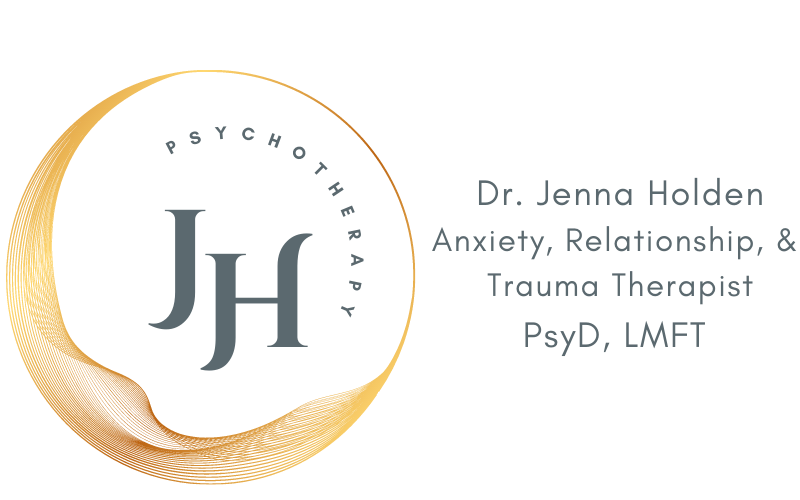
BASED IN ORANGE COUNY, SERVING ALL OF CALIFORNIA
Online Trauma Resolution
talk therapy and EMDR
Heal pain from the past from the comfort of home
Your past doesn't have to control your future.
Our lived experiences determine how we think about things, how we feel about ourselves, and how we respond to the world.
Whether you’ve been through something that you would consider deeply “traumatic” or not, we have all been through painful life experiences. Our minds and bodies will store this information in an attempt to protect us going forward. Sometimes this traps us in cycles that sound alarm bells when there is no real threat to our safety. This triggers our fight-flight-freeze-fawn response, which ultimately controls how we react in different situations. We may need to adjust the sensitivity to our alarm bells so that we can make more logical and sound decisions and have more thoughtful and intentional responses.
Trauma is an emotional reaction to a distressing event.
-
Big T Trauma
The reaction to an extraordinarily disturbing event that leaves the individual feeling significantly powerless and out of control of their environment and safety. Some examples include life or bodily-integrity threatening events such as physical abuse, sexual assault, accidents, natural disasters, near-death experiences, or witnessing these types of events. There is usually more recognition of the event being “traumatic,” as the effects tend to cause intense distress and interfere with one’s ability to function daily.
-
Little T Trauma
The reaction to an event that is not necessarily life or bodily-integrity threatening, but the sense of self is threatened, and the individual is left feeling powerless. Some examples include emotional abuse, attachment wounds, bullying, neglect, abandonment, infidelity, gaslighting, interpersonal conflict, legal or financial crises, and abrupt life transitions. There is a tendency to minimize these events, as they are not literally life-threatening, but can have powerful effects that disrupt different facets of one’s well-being.
You have to face your past in order to let it go.
Trauma affects the mind, brain, and body.
Trauma is not just about the event itself, it is about the lasting impressions that touch every part of the way we think, feel, and act. In fact, studies show that trauma can physically alter your brain structures. Chronic emotional abuse and neglect can be just as devastating as physical abuse. To act as if nothing happened or move on without confronting the painful parts of the past is not only destructive, it’s impossible.

The types of events and types of reactions can vary greatly.
Long Term Emotional and Cognitive Effects
Flashbacks, denial, intrusive thoughts and images, mood swings, strained relationships, emotional dysregulation, survivor’s guilt, sadness, rage, loss of self-efficacy, memory problems, difficulty concentrating, intense fear of it happening again, anxiety, depression, PTSD, dissociation, hyper-vigilance, rumination, panic, shame and self-blame.
Long Term Physical Effects
Racing heart rate, sweating, nausea, light-headedness, gastrointestinal issues, headaches, sleep disturbances, jitteriness, exhaustion, sensory overwhelm, exaggerated startle response, restlessness, shaking, chest pain, fainting, and hyperventilation.
Long Term Relational Effects
Intense fear of abandonment, inability to trust ourselves and others, feel you don’t deserve a healthy relationship, assume the worst when they miss a text or call, people pleasing to avoid rejection or disappointing others, anxious need for contact, small disagreements triggering big fears and arguments, fear of being hurt again, negative core beliefs, conflict avoidance, sexual arousal, performance, and satisfaction difficulties, shame and self-blame, stonewalling, being drawn to or involved in repeated unhealthy relationship dynamics, and feeling isolated within your relationship.
While these responses are common, they don’t have to be your “normal.”
Trauma-informed therapy can help you:
Learn to feel safe in your own body and mind
Be the source of calm you need in the face of your triggers
Increase emotional and bodily awareness
Alleviate distressing body sensations
Improve your anxiety, stress responses, and relationships
Increase your overall “window of tolerance” for emotion
Feel more empowered and engaged in your life
Be responsive, not reactive.

What are my options?
We can talk about the troubles you’re currently facing, and together we can decide what approach suits your healing needs best. Powerful results can be achieved with talk therapy, EMDR, or a combination of both.
We can do talk therapy only, start with talk therapy and introduce EMDR later as we uncover points of pain, start with EMDR and process the experience afterwards with talk therapy, EMDR only, or a flexible approach that incorporates both as needed.
